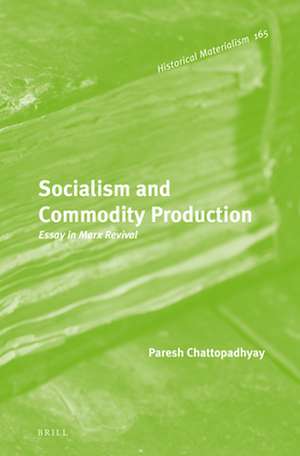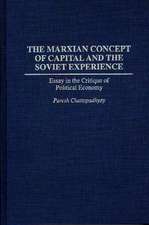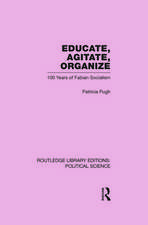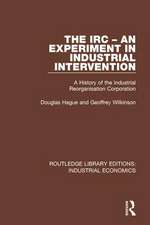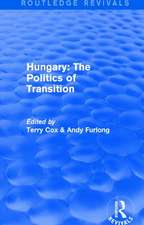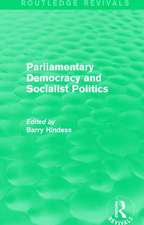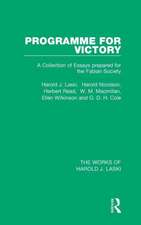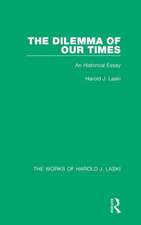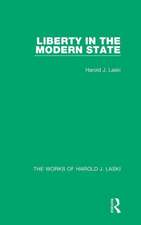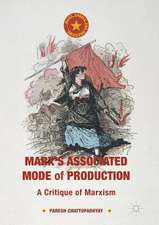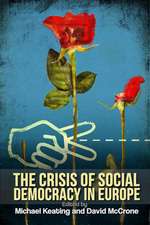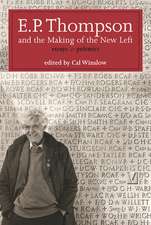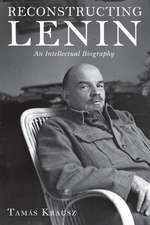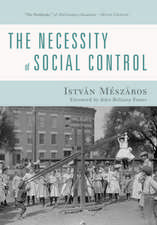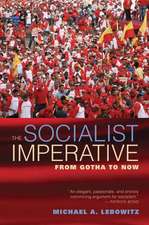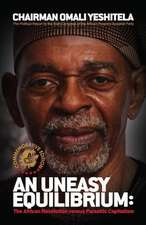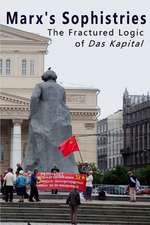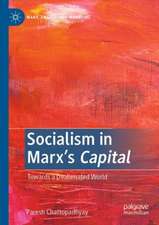Socialism and Commodity Production: Essay in Marx Revival: Historical Materialism Book Series, cartea 165
Autor Paresh Chattopadhyayen Limba Engleză Hardback – 15 aug 2018
Paresh Chattopadhyay’s Socialism and Commodity Production argues the falsity of this claim. On the basis of a comprehensive study of Marx's own texts, as well as a detailed engagement with a wide variety of theorists of socialist economics, it shows that Marx's socialism constituted an ‘Association’ of free individuals in which private ownership, the commodity, wage labour and the state have no place.
Din seria Historical Materialism Book Series
-
 Preț: 215.03 lei
Preț: 215.03 lei - 18%
 Preț: 966.97 lei
Preț: 966.97 lei - 18%
 Preț: 990.17 lei
Preț: 990.17 lei - 18%
 Preț: 1092.16 lei
Preț: 1092.16 lei - 18%
 Preț: 1229.68 lei
Preț: 1229.68 lei - 18%
 Preț: 1241.69 lei
Preț: 1241.69 lei - 18%
 Preț: 1190.02 lei
Preț: 1190.02 lei - 18%
 Preț: 893.05 lei
Preț: 893.05 lei - 18%
 Preț: 1401.90 lei
Preț: 1401.90 lei - 18%
 Preț: 928.61 lei
Preț: 928.61 lei - 18%
 Preț: 690.93 lei
Preț: 690.93 lei -
 Preț: 268.72 lei
Preț: 268.72 lei - 18%
 Preț: 674.66 lei
Preț: 674.66 lei - 18%
 Preț: 606.89 lei
Preț: 606.89 lei - 18%
 Preț: 783.83 lei
Preț: 783.83 lei - 18%
 Preț: 584.79 lei
Preț: 584.79 lei - 18%
 Preț: 711.88 lei
Preț: 711.88 lei - 18%
 Preț: 653.06 lei
Preț: 653.06 lei - 18%
 Preț: 531.92 lei
Preț: 531.92 lei - 18%
 Preț: 618.25 lei
Preț: 618.25 lei - 18%
 Preț: 647.76 lei
Preț: 647.76 lei - 18%
 Preț: 710.71 lei
Preț: 710.71 lei - 18%
 Preț: 922.25 lei
Preț: 922.25 lei - 18%
 Preț: 810.75 lei
Preț: 810.75 lei - 18%
 Preț: 996.79 lei
Preț: 996.79 lei - 18%
 Preț: 815.23 lei
Preț: 815.23 lei - 18%
 Preț: 1506.61 lei
Preț: 1506.61 lei - 18%
 Preț: 852.64 lei
Preț: 852.64 lei - 18%
 Preț: 645.67 lei
Preț: 645.67 lei - 18%
 Preț: 781.47 lei
Preț: 781.47 lei - 18%
 Preț: 615.24 lei
Preț: 615.24 lei - 18%
 Preț: 1155.48 lei
Preț: 1155.48 lei - 18%
 Preț: 1063.00 lei
Preț: 1063.00 lei - 18%
 Preț: 867.10 lei
Preț: 867.10 lei - 48%
 Preț: 1092.66 lei
Preț: 1092.66 lei - 36%
 Preț: 765.88 lei
Preț: 765.88 lei - 18%
 Preț: 648.19 lei
Preț: 648.19 lei - 18%
 Preț: 759.38 lei
Preț: 759.38 lei - 18%
 Preț: 716.43 lei
Preț: 716.43 lei - 18%
 Preț: 671.15 lei
Preț: 671.15 lei - 18%
 Preț: 671.56 lei
Preț: 671.56 lei - 18%
 Preț: 760.94 lei
Preț: 760.94 lei - 18%
 Preț: 1012.79 lei
Preț: 1012.79 lei - 18%
 Preț: 817.26 lei
Preț: 817.26 lei - 18%
 Preț: 656.87 lei
Preț: 656.87 lei - 18%
 Preț: 1298.20 lei
Preț: 1298.20 lei - 18%
 Preț: 791.88 lei
Preț: 791.88 lei - 18%
 Preț: 971.69 lei
Preț: 971.69 lei - 18%
 Preț: 635.15 lei
Preț: 635.15 lei
Preț: 711.11 lei
Preț vechi: 867.21 lei
-18% Nou
Puncte Express: 1067
Preț estimativ în valută:
136.09€ • 141.55$ • 112.35£
136.09€ • 141.55$ • 112.35£
Carte indisponibilă temporar
Doresc să fiu notificat când acest titlu va fi disponibil:
Se trimite...
Preluare comenzi: 021 569.72.76
Specificații
ISBN-13: 9789004231641
ISBN-10: 9004231641
Dimensiuni: 155 x 235 mm
Greutate: 0.57 kg
Editura: Brill
Colecția Brill
Seria Historical Materialism Book Series
ISBN-10: 9004231641
Dimensiuni: 155 x 235 mm
Greutate: 0.57 kg
Editura: Brill
Colecția Brill
Seria Historical Materialism Book Series
Cuprins
Preface
PrologueTwentieth-Century SocialismSocialism as Minority RuleLenin’s RoleThe Relevance of MarxA Caricature of Marx’s Socialism
1 On Socialism: Association of Free Individuals(Pre)conditions of SocialismAssociated Mode of ProductionOwnership RelationExchange RelationsDistribution/AllocationLabouring Individual under Socialism
2 Commodity ProductionFrom Commodity to CapitalParadoxes and ContradictionsOn the Value FormCommodity Circulation: Possibility of Crisis
3 Simple Commodity ProductionThe ProblemDiscussion after EngelsThe CriticsCriticisms DiscussedConclusion
4 Commodity Production and Socialism in Marx’s FollowersThe First Followers: August Bebel and Karl KautskyMarxians after Kautsky
5 On Socialist AccountingThe Labour ProcessPoint of DepartureHow to ProceedLabour Time: Neglected AspectsLabour Time and Non-labour TimeSocialist Accounting FrameworkOn Planning and the Unit of Calculation
6 Anarchist CommunismPeter KropotkinCarlo CafieroAnarchism and Marx: The Relation
7 Concerning Guild SocialismIntroductionGuild Socialism as DemocracyDistribution and Allocation in Guild SocialismConsumers and ProducersTransformation of the Existing SocietyAmbiguities and Contradictions
8 On Market SocialismOrigin of Market SocialismThe Competitive SolutionCriticismsFeasible SocialismAnalytical Market SocialismMarket Socialism ProperMarket Socialism – ‘Marxian’Market Socialism is Capitalism
9 The Problematic of a Non-capitalist Road to SocialismCapital’s Positive ContributionThe ControversyControversy ContinuedFurther Considerations
Epilogue. Illusion of the Epoch: Twentieth-Century SocialismPreliminariesNature of Twentieth-Century SocialismThe Party-StateThe Fundamental Question
ReferencesIndex
PrologueTwentieth-Century SocialismSocialism as Minority RuleLenin’s RoleThe Relevance of MarxA Caricature of Marx’s Socialism
1 On Socialism: Association of Free Individuals(Pre)conditions of SocialismAssociated Mode of ProductionOwnership RelationExchange RelationsDistribution/AllocationLabouring Individual under Socialism
2 Commodity ProductionFrom Commodity to CapitalParadoxes and ContradictionsOn the Value FormCommodity Circulation: Possibility of Crisis
3 Simple Commodity ProductionThe ProblemDiscussion after EngelsThe CriticsCriticisms DiscussedConclusion
4 Commodity Production and Socialism in Marx’s FollowersThe First Followers: August Bebel and Karl KautskyMarxians after Kautsky
5 On Socialist AccountingThe Labour ProcessPoint of DepartureHow to ProceedLabour Time: Neglected AspectsLabour Time and Non-labour TimeSocialist Accounting FrameworkOn Planning and the Unit of Calculation
6 Anarchist CommunismPeter KropotkinCarlo CafieroAnarchism and Marx: The Relation
7 Concerning Guild SocialismIntroductionGuild Socialism as DemocracyDistribution and Allocation in Guild SocialismConsumers and ProducersTransformation of the Existing SocietyAmbiguities and Contradictions
8 On Market SocialismOrigin of Market SocialismThe Competitive SolutionCriticismsFeasible SocialismAnalytical Market SocialismMarket Socialism ProperMarket Socialism – ‘Marxian’Market Socialism is Capitalism
9 The Problematic of a Non-capitalist Road to SocialismCapital’s Positive ContributionThe ControversyControversy ContinuedFurther Considerations
Epilogue. Illusion of the Epoch: Twentieth-Century SocialismPreliminariesNature of Twentieth-Century SocialismThe Party-StateThe Fundamental Question
ReferencesIndex
Recenzii
'There are few things in the world as complicated as capitalism, and that has made it very easy for friends and foes of Marx alike to downplay or omit completely important parts of his analysis ... Yet, the potential of capitalism to evolve into communism is scattered all over Marx's writings, early and late, and is an essential part of his thinking ... Paresh Chattopadhyay is one of the few scholars who does justice to this dimension of Marxism, and he -- and his latest work -- deserve our closest attention and thanks. Highest marks!'-- Prof. Bertell Ollman, Dept. of Politics, NYU
Notă biografică
Paresh Chattopadhyay, State Doctorate in Economic Sciences (1964), University of Paris, has published many articles, as well as the book The Marxian Concept of Capital and the Soviet Experience (Praeger, 1994; translated into Japanese in 1999). He is Professor of Political Economy in the Faculty of Human Sciences, University of Quebec in Montreal.
